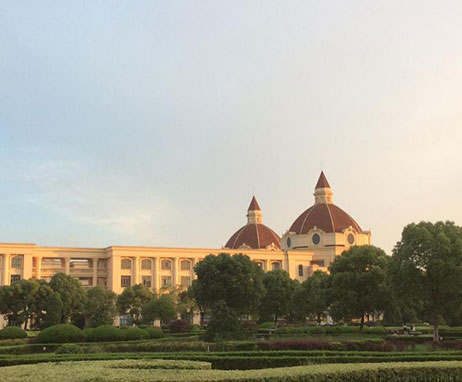
Tuition and Fees
|
1)
Application fee: |
800 RMB /time |
|
2) Tuition
fee: |
26,000 RMB
/year |
|
3)
Insurance Fee: |
600 RMB /year |
According to the regulation of the Ministry of Education of People's Republic of China, all the international students who study in China should buy "Insurance for Overseas students" in mainland China.
Application Deadline
May 31 (however EARLY March, April, May applications preferred)

Entrance Examination
The Entrance Examination includes both written and oral tests held in May. Exact examination date and place (or Skype) arrangements will be confirmed by email by the SISU Graduate School.
English Language Proficiency
Applicants must demonstrate a good command of English, certified by TOEFL IBT (Internet based) test score of at least 80 points, TOEFL (computer based) score of at least 213 points, TOEFL (paper based) score of at least 550 points, or IELTS test score of at least 6.0. Applicants without these standards can request “conditional acceptance” but will be required to pass an English Entrance Examination first. This requirement does not apply to any applicant who has studied for at least two years at, or received a degree from an English speaking high school, college, or university.
Applicant Qualifications
Applications are open to foreign passport holders in good health who are university graduates with a completed bachelor’s degree (transcript required).
Scholarships
Full/partial scholarships offered by Chinese government agreements with your country (please consult your Chinese embassy), through the CSC or Shanghai government can be applied for (start early! Many require materials submitted in March or early April).

Program Duration
2 Academic Years (1 for courses, 1 for thesis)
Main Courses
(to be completed in the first two semesters)
|
IC Major Foundation Courses |
IC PROFESSIONAL ORIENTATION COURSES |
|
Seminal Intercultural Readings and Academic Writing |
Topics in Intercultural Communication Research:
Intergroup Relations Approaches |
|
Intercultural Communication Competence: Theory
& Practice |
Intercultural Education and Training |
|
Intercultural Business Communication (IBC) |
|
|
Introduction to Cross-cultural
Methods |
Cross-cultural and Indigenous Psychology |
|
Foundations of Intercultural Research: History
& Status |
Varied Electives from
English Language & Literature, International Relations, Global Media,
other Cultures |
|
Intercultural Inquiry: Qualitative Methods |
Introduction to Western Thought |
|
Cross-cultural Quantitative Research Design |
Hollywood Film and Philosophy |
Curriculum
(for this Master of Arts MA degree, each course usually constitutes of 2 credits)
|
Chinese I,
II (or other 2nd language) |
2+ |
|
Academic
Foundation & IC Major Core Courses |
6+ |
|
IC Academic
or Professional Focus Courses |
8+ |
|
With the
successful defense of an original MA thesis paper (about 100,000 words, 60-80 pages) |
|
|
Cross-cultural
Internship (Report) |
1-3 credits |
|
Total Courses/Credits required (minimum): |
17+ courses (33-37 credits) |
Program Overview
This 2-year program (located on the beautiful Songjiang suburb campus of SISU) goes beyond basic comparisons of culture to examine one’s personal cultural orientation, “Other” awareness, sensitivity and competence, issues in interpersonal communication, intercultural education and training, cross-cultural psychology, cross-cultural business management, and “culture” represented in texts (literature or discourse). The program academically extends the exposure provided though our global online course (www.futurelearn.com/courses/intercultural-communication) which all applicants are urged to take in preparation for understanding basic orientations of the IC field.

Through introducing the history and status of IC research and training internationally, the program focuses first on mastering leading concepts, theories, and methodologies (analytical, descriptive, and critical research approaches) then applying these to personal or professional interest areas through group projects, discussions, or original investigations (including writing up an MA thesis project). Graduates are trained to be academically and practically equipped to integrate the analysis of culture, context, and discourse into their future research or careers, and develop themselves as well-rounded, competent intercultural analysts and global communicators.











